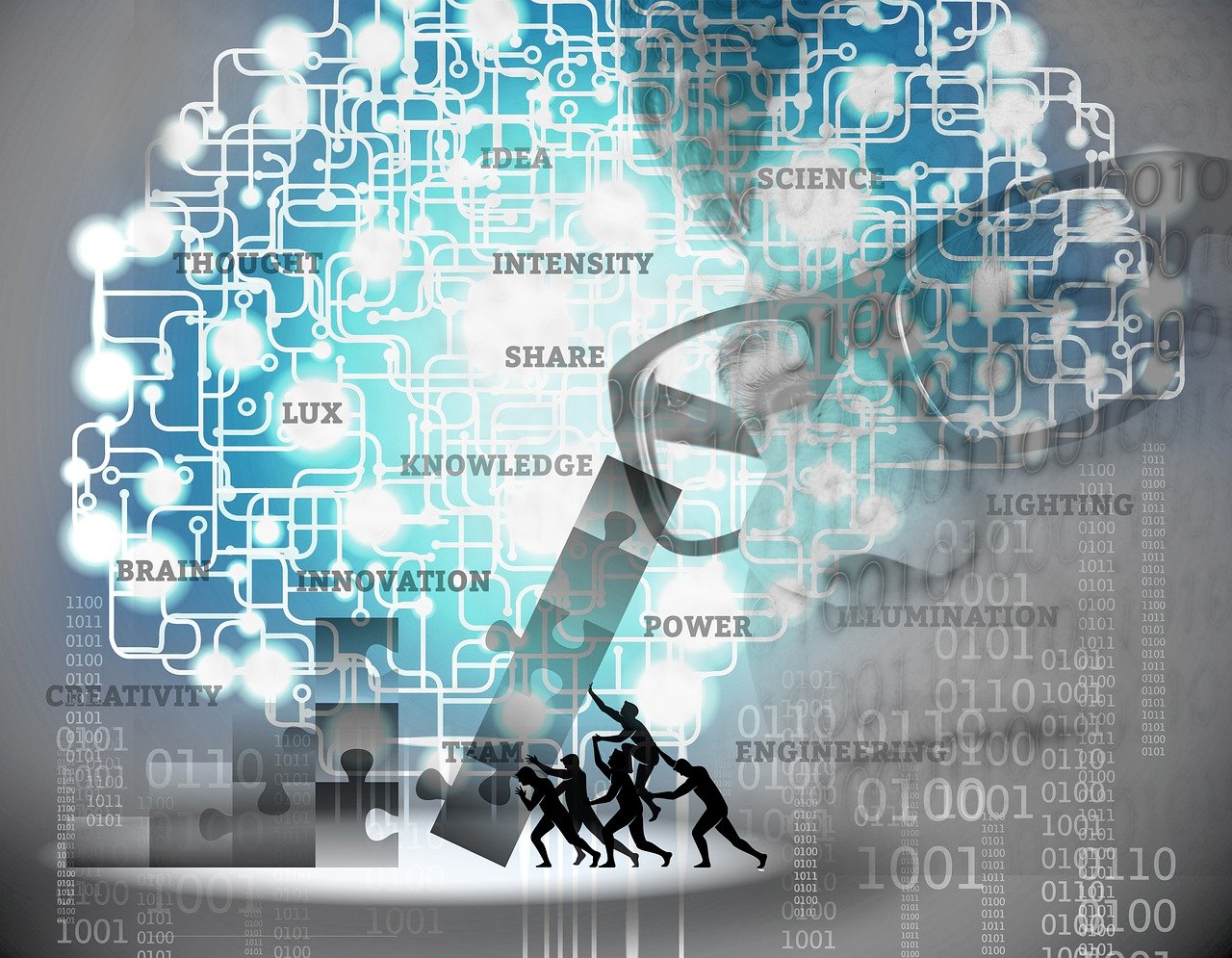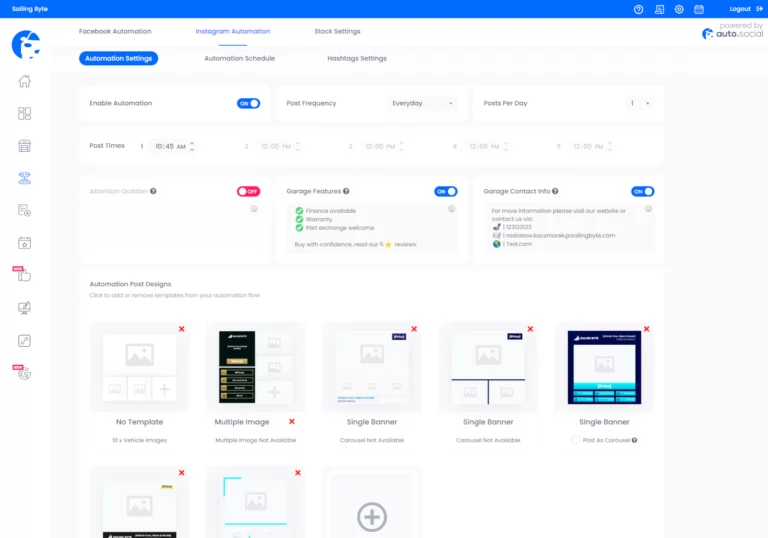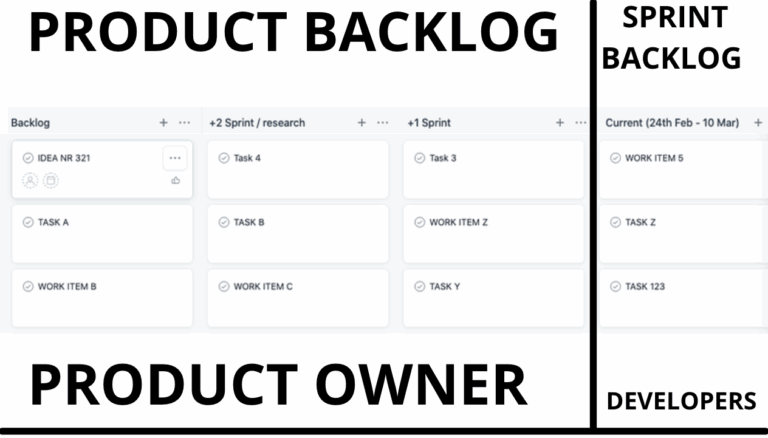Why Automation is the Lifeblood of SaaS Growth
Automation is essential in SaaS because it allows platforms to scale effortlessly without increasing operational overhead. By automating repetitive tasks, companies can free up resources to focus on higher-value activities such as innovation, customer service, and product development.
- Improved Efficiency: Automating mundane tasks such as invoicing, customer onboarding, or data management allows teams to work faster and with fewer errors.
- Scalability: Automation makes it easier to scale SaaS platforms. As your user base grows, automation ensures that critical processes continue to run smoothly without requiring a proportional increase in manpower.
- Cost Savings: Automation reduces labor costs and eliminates the need for manual intervention, driving down operational costs.
In essence, automation is the backbone of scalable, efficient SaaS operations, ensuring businesses can grow without bottlenecks, high costs, or operational inefficiencies while focusing on innovation and customer-centric improvements.
Why AI Matters for SaaS Businesses
Artificial Intelligence plays a pivotal role in driving innovation and intelligence within SaaS platforms. AI enables businesses to harness the power of data, optimize decision-making processes, and create personalized experiences for users.
- Data-Driven Insights: SaaS platforms generate vast amounts of data. AI helps make sense of this data by identifying trends, predicting outcomes, and providing actionable insights.
- Personalization: AI allows for hyper-personalized user experiences by analyzing user behavior and preferences, making recommendations, and adjusting interactions accordingly.
- Automation and AI Synergy: While automation streamlines processes, AI enhances them by making them smarter. AI can dynamically adjust workflows based on data-driven insights, ensuring optimal performance and efficiency.
AI is the driving force behind smarter SaaS platforms, making them more adaptive, personalized, and capable of offering data-driven solutions to improve user satisfaction and operational efficiency.
Bringing AI and Automation Together for Maximum Impact
AI and automation are two sides of the same coin when it comes to building a powerful SaaS platform. Automation takes care of routine tasks, while AI brings intelligence, optimizing these tasks for better outcomes.
- Smart Process Automation: AI can enhance automated workflows by making decisions based on real-time data. For instance, AI can identify anomalies and make adjustments to automated processes in logistics or customer support.
- Predictive Maintenance: In SaaS platforms that deal with infrastructure, AI can predict when maintenance is needed and trigger automated workflows to address potential issues before they escalate.
- Dynamic Scaling: AI can monitor usage patterns and automate scaling in cloud-based SaaS platforms to meet demand without wasting resources.
By integrating AI with automation, businesses not only automate routine tasks but also make these processes smarter and more responsive, ensuring greater efficiency, adaptability, and real-time optimization of workflows.
AI and Automation in Logistics
AI and automation offer numerous opportunities for optimizing logistics-focused SaaS platforms. Some key areas include:
- Route Optimization: AI algorithms can analyze traffic data, delivery schedules, and fleet performance to identify the most efficient delivery routes. Automation then executes the optimal routing.
- Inventory Management: AI can forecast demand and adjust inventory levels automatically, ensuring optimal stock levels at all times.
- Supply Chain Automation: From procurement to shipment tracking, AI can streamline the entire supply chain by analyzing data in real-time and triggering automated workflows.
Together, AI and automation transform logistics into a seamless, data-driven operation where supply chains are optimized, customer expectations are met, and businesses can anticipate and adapt to challenges with minimal manual intervention. Combination of these tools provides businesses with a robust toolkit to integrate AI-driven insights and automate critical tasks, enhancing both operational efficiency and decision-making across their SaaS platforms.
Top Tools for Automating SaaS Platforms with AI Integration
There are numerous tools available to help implement AI and automation in SaaS platforms. Here are some of the top options:
- Zapier: Connects various apps and automates workflows with ease.
- N8N: A personal favorite—it’s a powerful open-source automation tool that allows for customized workflows. Sailing Byte has even published free automation scripts using N8N.
- Tray.io: A platform for creating scalable automated workflows.
- HubSpot: Provides AI-powered marketing and CRM automation.
- Integromat: Similar to Zapier, it connects apps and automates workflows.
- UiPath: A leading platform for robotic process automation (RPA).
- Blue Prism: Another RPA tool focused on automating back-end processes.
- Workato: A powerful integration and automation tool.
- Google Cloud AI: Provides various AI services, including machine learning and natural language processing.
- AWS AI Tools: Amazon Web Services offers a wide range of AI and machine learning tools to enhance automation efforts.
These tools enable businesses to integrate AI and automation seamlessly, allowing for smarter, more efficient processes.
Logistics Optimization Through AI-Driven Automation
Logistics-based SaaS platforms can benefit significantly from AI and automation in various ways:
- Optimizing Fleet Management: AI can predict when vehicles need maintenance, while automation schedules repairs or maintenance tasks.
- Real-Time Tracking: AI analyzes route efficiency, fuel usage, and driver behavior, while automation processes the data to trigger necessary actions.
- Demand Forecasting: AI forecasts demand trends, allowing automation to adjust inventory levels and warehouse management.
AI and automation turn logistics-based SaaS into highly efficient, scalable, and adaptive platforms, driving greater operational excellence. By leveraging AI and automation, logistics-based SaaS platforms can become more agile, cost-effective, and capable of meeting customer demands with precision and speed, ensuring better service and operational excellence.
We have conducted AI research and automation for few of our clients — CARGOseller case study is an example how this can work together and benefit both end-users and businesses.
AI and Automation in Healthcare SaaS
In health-based SaaS, AI and automation play a pivotal role in improving patient care, streamlining operations, and ensuring compliance with regulations.
- Patient Data Management: AI can automatically analyze patient records, ensuring accurate diagnoses and personalized treatment plans, while automation handles data entry and compliance checks.
- Appointment Scheduling: AI predicts patient needs and automates scheduling based on availability, reducing administrative work and improving patient care.
- Billing and Insurance: AI identifies potential billing errors and automates claim submissions, ensuring timely and accurate payments.
SaaS platforms in healthcare that integrate AI and automation enhance both operational efficiency and patient outcomes. By integrating AI and automation, health-based SaaS platforms can deliver more personalized, efficient, and compliant healthcare services, transforming how care is provided and managed for both providers and patients.
One of the cases we made KPI automation is Klinika Dla Kobiet, where we utilized power of Looker Studio, N8N, AI, Google Search Console and SCRUM tasks tracking performance. This helped us with business optimization and reducing operational costs.
Driving Efficiency Across Departments with AI and automation
AI and automation can drastically improve the efficiency of key business functions, from financial operations to human resources and beyond. Let’s explore how these technologies can revolutionize core business areas.
- Financial Operations:
- Automated Bookkeeping: AI-powered tools can automatically categorize transactions, generate reports, and flag potential discrepancies.
- Predictive Analytics: AI can forecast financial performance, helping businesses make informed budgeting and investment decisions.
- Fraud Detection: AI can detect anomalies in transactions and trigger automated workflows to investigate potential fraud.
- Human Resources:
- Recruitment Automation: AI can sift through resumes, identifying top candidates based on predefined criteria, while automation schedules interviews and sends out offer letters.
- Employee Onboarding: AI can provide personalized onboarding experiences, while automation ensures that all necessary documentation and training are completed.
- Performance Monitoring: AI analyzes employee performance data and automates performance reviews and feedback processes.
- Operational Management:
- Supply Chain Optimization: AI can predict supply chain disruptions, and automation adjusts procurement orders accordingly.
- Task Automation: Routine operational tasks such as inventory updates, quality checks, and order processing can be automated for improved efficiency.
- Data Reportingand Analytics: AI-powered tools can automatically generate reports, analyze operational data, and provide actionable insights. Automation ensures these reports are delivered to relevant stakeholders without manual intervention, providing real-time visibility into key metrics.
- Customer Service:
- Chatbots: AI-driven chatbots can handle customer inquiries 24/7, automating support for frequently asked questions while escalating more complex issues to human agents.
- Sentiment Analysis: AI can analyze customer feedback, identifying patterns in customer sentiment. Automation can trigger actions such as issuing refunds, generating reports, or adjusting service offerings based on customer sentiment.
- Procurement:
- Automated Purchase Orders: AI predicts when stock levels will run low and automates the creation and approval of purchase orders, ensuring that inventory is always at optimal levels.
- Supplier Management: AI analyzes supplier performance, cost efficiency, and contract compliance, while automation handles vendor communications and negotiations.
This combination enables businesses to streamline their workflows, reduce costs, and make data-driven decisions faster. It also improves accuracy in financial reporting, speeds up HR processes, and ensures that operations run smoothly with minimal manual oversight. By automating critical tasks and applying AI to guide decision-making, businesses can focus more on strategic growth while reducing the risk of human error and inefficiency. By integrating AI and automation across these business functions, organizations can significantly reduce operational overhead, improve efficiency, and make more informed, data-driven decisions.
Exploring 50 More Use Cases for AI and Automation in Online Businesses
Here are 50 additional ways AI and automation can be leveraged in various online business contexts beyond what’s already been discussed:
- Automated Content Curation: AI can recommend personalized content to users based on their behavior and preferences.
- Smart Email Campaigns: AI can segment audiences and automate personalized email marketing campaigns for higher engagement.
- AI-Powered Dynamic Pricing: Automatically adjust product prices based on demand, competition, and inventory levels.
- Customer Lifetime Value Prediction: AI can predict the lifetime value of customers and trigger targeted marketing efforts.
- Abandoned Cart Automation: AI tracks abandoned carts and triggers personalized email reminders to recover lost sales.
- Automated Tax Compliance: AI ensures your business adheres to local and international tax regulations, automating the process.
- Demand Forecasting: AI predicts future product demand, allowing businesses to optimize inventory levels and procurement.
- Automated Web Scraping: Gather competitor data, market trends, or customer sentiment using AI-powered scraping tools.
- Content Generation: AI can automate the creation of social media posts, product descriptions, and blog articles.
- AI-Driven A/B Testing: AI analyzes the performance of different versions of content, ads, or landing pages and automates the selection of the best performer.
- Fraud Prevention in E-commerce: AI detects suspicious activity and triggers automated actions like blocking transactions or flagging accounts.
- AI Chatbots for Sales: Intelligent chatbots can assist in closing deals, upselling products, and automating follow-ups.
- SEO Automation: AI can analyze search trends and automate content updates to improve SEO rankings.
- Inventory Alerts: AI tracks stock levels and triggers automated alerts for restocking.
- Sentiment Analysis in Reviews: AI can analyze product reviews to identify trends and trigger actions like product adjustments or marketing strategies.
- Automated Reporting: AI gathers data across platforms and automatically generates detailed performance reports.
- Customer Segmentation: AI segments your customers based on behavior, demographics, or purchasing patterns, automating targeted marketing campaigns.
- Supply Chain Risk Management: AI predicts supply chain risks and triggers automated mitigations like alternative sourcing.
- Predictive Customer Support: AI predicts when a customer might need help based on behavior and preemptively offers solutions.
- AI-Powered Video Editing: Automate video content editing based on user engagement data.
- Sales Forecasting: AI can predict future sales performance and automate inventory or staffing decisions.
- AI-Generated Product Recommendations: Suggests personalized products to customers based on their browsing and purchasing history.
- Smart Contracts for SaaS Agreements: Automate contract generation and management using AI.
- Lead Scoring Automation: AI can score leads based on potential and trigger sales outreach workflows.
- Automated Social Media Engagement: AI can engage with customers on social media platforms by liking, commenting, or responding to inquiries.
- Automated Affiliate Program Management: AI manages your affiliate programs, tracking performance and issuing payouts automatically.
- HR Analytics: AI analyzes employee data to predict turnover and automate hiring processes.
- Dynamic Email Personalization: AI customizes email content based on user behavior in real-time.
- Predictive Maintenance for SaaS Servers: AI predicts when servers will need maintenance and automates the scheduling of downtime.
- Voice Search Optimization: AI optimizes content for voice search and automates content adjustments.
- AI-Driven User Feedback Surveys: Automates the distribution and analysis of surveys, gathering insights without manual effort.
- Customer Journey Mapping: AI visualizes customer touchpoints and automates improvements to the user journey.
- Automated Quality Assurance for Software Development: AI tests software functionality and automates bug reporting.
- AI-Powered Loan Approval: Automate loan approvals by using AI to assess creditworthiness and make decisions.
- AI-Based Virtual Personal Assistants: Provides users with AI-driven assistants to manage their online accounts and transactions.
- Personalized Learning Paths in EdTech SaaS: AI can create customized learning paths for students based on performance.
- Real-Time Stock Market Analysis: AI tracks and predicts stock market trends, automating buy/sell recommendations.
- AI-Powered Ad Optimization: Automatically adjusts ad spend and targeting based on real-time data.
- Virtual Fitting Rooms in E-Commerce: AI-powered virtual fitting rooms help customers try on clothes digitally.
- AI-Based Content Translation: Automate translation of website content into multiple languages based on user location.
- Dynamic UX Personalization: AI alters website layout and features based on user interaction patterns.
- Predictive Search in E-commerce: AI predicts search queries and automates product suggestions as users type.
- AI-Powered Document Management: Automates document sorting, tagging, and storage for efficient access and compliance.
- Payment Fraud Detection in SaaS: AI can analyze transaction data and automatically flag suspicious activities.
- Predictive Shipping Times: AI predicts shipping times for e-commerce and automates order processing adjustments.
- Smart Ad Bidding: AI optimizes bidding strategies in real-time, automating adjustments for maximum ROI.
- Dynamic Pricing in Subscription Models: AI adjusts subscription prices based on market demand and customer behavior.
- Personalized Customer Onboarding: AI customizes onboarding processes based on user type, automating tailored experiences.
- Real-Time Compliance Monitoring: AI ensures your SaaS platform complies with regulations by automatically detecting compliance gaps.
- Voice-Assisted Operations: AI-powered voice commands can automate back-office tasks like scheduling, invoicing, or data entry.
These diverse use cases show the endless potential for AI and automation in transforming various facets of online business operations.
Your Partner in AI-Driven SaaS Automation
At Sailing Byte, we don’t just implement AI and automation solutions; we help you understand and maximize their potential for your unique business needs. Whether it’s automating key business processes, tracking KPIs, or optimizing operations with AI-driven insights, we specialize in creating tailored solutions that help you scale and thrive.
We combine the principles of Evidence-Based Management (EBM) with cutting-edge technologies like N8N—our favorite tool for building custom automation workflows. Our goal is to empower you to not only improve your SaaS platform’s performance but also gain a deeper understanding of how automation and AI can drive sustainable growth.
Sailing Byte isn’t just about software development; we’re about creating intelligent, automated systems that align with your business goals and help you focus on what really matters—growing your business. Let us help you chart a course for success with AI and automation, guiding you every step of the way.




